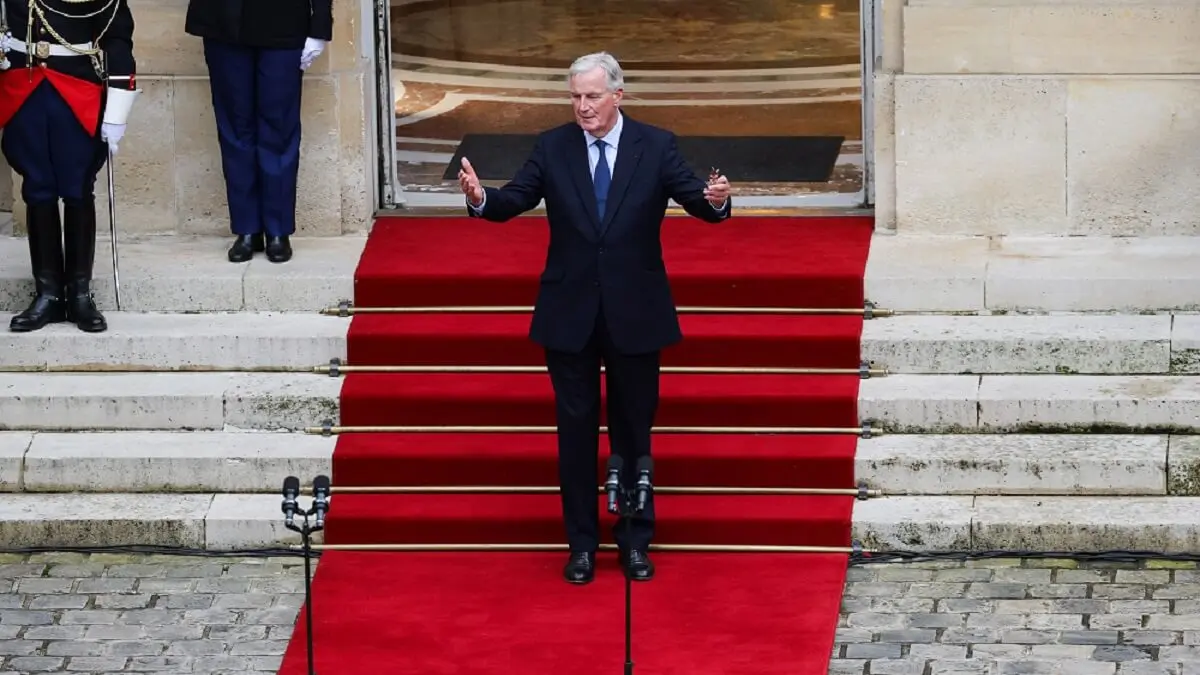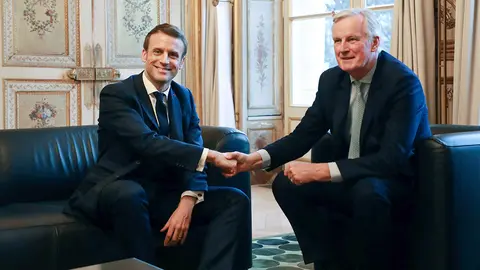Barnier, a shield for Macron

But he has also ended up obtaining the acquiescence of Marine Le Pen's National Rally (RN), whose 143 deputies in the National Assembly are essential to surpass the 289-seat threshold for an absolute majority.
The extreme right of the RN argues, however, that it will make its final decision on whether or not to support Michel Barnier once he has presented his programme to the House. But there is little doubt that Macron has secured their affirmative vote before proceeding with the appointment of the veteran politician, now 73 years old, who first took office when he was just 22.
Michel Barnier has been practically everything, holding four times as many ministerial portfolios, as well as being a veteran MEP and European Commissioner, culminating almost a quarter of a century of his long career in Europe as chief negotiator for Brexit, the UK's traumatic exit from the European Union, but which he managed to steer while preserving Europe's interests. A man of consensus and a proven skilful negotiator, he managed to break the cunning and constant British offensive to divide Europeans through the tactic of informing all EU members of absolutely everything, thus undoing the traditional British strategy of playing one against the other.
It was Barnier's last precious service to the European cause, which had the best result of keeping the ranks tight as this side of the English Channel saw that nothing came of the defector EU member as successive London governments had painted it to their citizens.
He did, however, have one subsequent temptation, and a shock: to run in the presidential election primaries for his party, the Republicans, the former conservative Gaullist right, now renamed the Republican Right. He lost and decided to retire to ‘cultivate his garden’, as the French expression goes. Macron now rescues him from his retirement and commissions him to ‘form a government of national unity’. A task in which it is safe to assume that the deputies of the New Popular Front (NFP), and more precisely those of the boisterous Jean-Luc Mélenchon's La France Insoumise (LFI), who has been quick to describe Barnier's appointment as ‘a robbery of those who won the elections’, will not be involved.
In any case, Michel Barnier has a lot of work to do to temper the shouting in the cricket cage that is the current hemicycle of the French lower house. Within the alliance of convenience that is this new version of the Popular Front, it did not sit well with the Socialist Party, or rather with a part of its more than emaciated formation, that Macron did not appoint the veteran Bertrand Cazeneuve, a moderate social democrat. To compensate, Macron also snubbed the candidacy of the centrist Xavier Bertrand. With the president's hands and feet tied by the scant weight of Macronism that supports him, essentially the Renaissance party, the real arbiter of the situation is precisely the RN. And it has already set two conditions for not submitting a motion of censure to Barnier: to revise the way the elections are counted, at least by giving much more weight to the proportional system, and immediately afterwards to hold new elections, that is, more or less at the end of 2025. With the latest voting results in hand, the RN would have swept the board in terms of the number of seats, whereas under the current system it has had to settle for a meagre second place.
Thus, Macron has escaped the impasse he himself had created by bringing forward the elections, seasoned with a very long and unprecedented wait to appoint a Prime Minister, something that in France is done quickly, almost as soon as the votes are counted, without giving rise to the fiddling and wheeling and dealing of investitures with deadlines more typical of the age of stagecoaches than of today's hypersonic transports. With Barnier, he also gains a great personal and prestige shield. He will have to deal with the thorny issue of immigration - he himself, an unabashed pro-European, went so far as to call for a moratorium on the EU agreement - and, above all, tackle France's already endemic deficit problem. Minister Bruno Le Maire has put the cuts that France must begin to implement this year at 16 billion euros, and the European Commission itself is about to open the corresponding file on Paris for excessive deficit.
Barnier has been a frequent visitor to Spain, and has been an accredited teacher of the virtues of the great adventure that is the EU. Invited by the Association of European Journalists, he has been one of the great disseminators of the history, vicissitudes, wars and upheavals of Europe, happily left behind in the face of the present and future of the experiment of its strength through the adhesion and voluntary association of those who have fought so many bloody wars over so many centuries.


